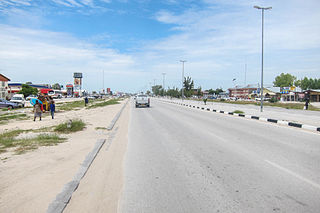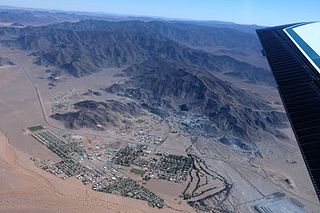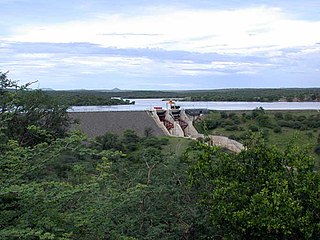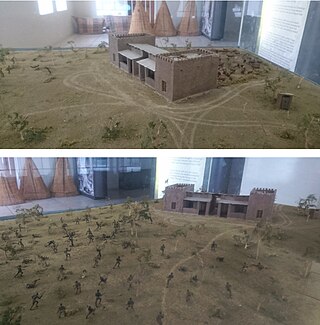Related Research Articles

The Sacramento Kings are an American professional basketball team based in Sacramento, California. The Kings compete in the National Basketball Association (NBA) as a member of the Pacific Division of the Western Conference. The Kings are the oldest team in the NBA, and the first team in the major professional North American sports leagues located in Sacramento. The team plays its home games at Golden 1 Center. Their best seasons to date in the city were in the early 2000s, including a very successful 2001–02 season when they had the best record in the NBA at 61–21.

ARCO Arena was an indoor arena located in Sacramento, California, United States. Opened in 1988, it was the home of the Sacramento Kings of the National Basketball Association (NBA) from 1988 to 2016. It hosted nearly 200 spectator events each year. The arena was named for ARCO, at the time in 1988, a Los Angeles–based independent oil and gas company that today is now a brand owned by Findlay, Ohio–based Marathon Petroleum. It was later named for Sleep Train, a chain of mattress and bed retailers based in Rocklin, California, that at the time of the agreement was a subsidiary of Mattress Firm, a Houston-based retailer that has since re-branded all Sleep Train stores as Mattress Firm. Several major entertainers have performed at the venue, including Bruno Mars and Linkin Park.

Marco Mukoso Hausiku was a Namibian politician who was Deputy-Prime Minister of Namibia from 2010 to 2015.

Ondangwa is a town in the Oshana Region of northern Namibia, bordering the Oshikoto Region. Ondangwa was first established as a mission station of the Finnish Missionary Society in 1890. In 1914, it became a local seat of government.

Rosh Pinah is a mining town located in southern Namibia, close to the border with South Africa. It is situated 360 kilometres (220 mi) south of Keetmanshoop in Namibia's ǁKaras Region. West of the town lies Diamond Area 1, the main diamond mining area of Namibia. Rosh Pinah belongs to the Oranjemund electoral constituency. The town is connected via road to Aus and Oranjemund.

The Von Bach Dam is a rock-fill embankment dam on the Swakop River near Okahandja in the Otjozondjupa Region of Namibia. Built in 1968 and commissioned in 1970, the dam provides Namibia's capital of Windhoek with much of the city's water. It also supplies Okahandja. The dam has a capacity of 48.56 million cubic metres (63,510,000 cu yd). Water from the reservoir is sent directly to a water treatment plant downstream. The treatment plant was completed in 1971 and upgraded in 1997.

Swakoppoort Dam is a dam 50 kilometres (31 mi) outside of Okahandja, Otjozondjupa Region, Namibia. It dams the Swakop River and occasionally receives inflow from the Omatako Dam on Swakop's tributary Omatako. Its capacity is 63.489 million cubic metres (83,040,000 cu yd). Completed in 1978, it is one of three dams to supply water to the capital Windhoek. It also supplies the Navachab mine and the town of Karibib.
Ondonga is a traditional kingdom of the Ovambo people in what is today northern Namibia. Its capital is Ondangwa, and the kingdom's palace is at Onambango. Its people call themselves Aandonga. They speak the Ndonga dialect. The Ondonga kingdom is ruled by an Omukwaniilwa (king), assisted by a council of elders, the Ondonga Traditional Authority. After the death of king Immanuel Kauluma Elifas in March 2019, Fillemon Shuumbwa Nangolo was appointed as successor and subsequently recognised by government.
Lutheranism was first introduced to Angola in the late 1800s, when Finnish missionaries began working in northern Namibia and southern Angola. Following the Portuguese defeat of Mandume Ya Ndemufayo in 1917, the Lutheran church in Angola was repressed by the Roman Catholic Portuguese authorities. In 1956, Lutheranism was reestablished in Angola, and in 1991, the Evangelical Lutheran Church of Angola was organized as an independent church body. In 1997, a smaller group of conservative Lutheran missionaries helped to organize a second Angolan Lutheran church: the Confessional Lutheran Church in Angola.
Onimwandi is a settlement in the Oshana Region in northern Namibia. It belongs to the Oshakati West electoral constituency and is situated 5 kilometres (3.1 mi) away from Oshakati on the left hand side of the main road on the way to Okahao. The headman of the Oniimwandi village is Mr Erastus Amupolo and his assistant is Mr Juuda Amupolo.
Negumbo Senior Secondary School is a state high school in Onaanda in the Omusati Region of northern Namibia. It is situated 50 km west of Oshakati. Negumbo was founded in 1999, and was officially opened by President of Namibia Dr. Sam Nujoma on 3 June 1999. The school is named after the late King of Uukwambi, Negumbo lyaKandenge, who killed a lion near the future location of the school.
Onandjokwe State Hospital, until 2016 Onandjokwe Lutheran Hospital, is the oldest hospital in the northern part of Namibia. It was built in 1911 by the Finnish Missionary Society under the leadership of Selma Rainio. The hospital was operated by the Evangelical Lutheran Church in Namibia (ELCIN) via Lutheran Medical Services until 2016, when the Government of Namibia took over.

Affirmative Repositioning (AR) is a leftist political movement in Namibia mainly focused on land reform, youth empowerment and social reform. Founded in 2014 by Job Amupanda, Dimbulukeni Nauyoma and George Kambala, the AR uses social media platforms to mobilise residents to apply for erven from municipalities. Due to thousands of youth submitting their forms on the same day, these activities have the character of mass demonstrations. The movement had, in a first round in November 2014, achieved a wave of individual land applications in Windhoek, Namibia's capital, which had since spread to other Namibian towns. The Affirmative Repositioning movement had threatened to take the land by force had the applications not have been processed and approved by July 2015 in the local municipalities. In 2024 the movement was officially registered as a political party.
Fillemon Elifas Shuumbwa was the chief of Ondonga and chief minister of Ovamboland (1972–75). The Ondonga tribal area is situated around Namutoni on the eastern edge of Etosha pan in today's northern Namibia. He was assassinated in 1975 at Onamagongwa and buried in Olikondo.
Omukwaniilwa Immanuel Kauluma Elifas was a chief of the Ondonga, a sub-tribe of Owambo people since 28 August 1975, in Namibia having succeeded his brother the late Chief Fillemon Elifas Shuumbwa who was gunned down the same year at Onamagongwa. The Ondonga tribal area is situated around Namutoni on the eastern edge of Etosha pan in northern Namibia. Kauluma was also the Chairperson of the Council of Traditional Leaders for many years. He was succeeded as King by the designate Omukwaniilwa of Ondonga, his great-grandson Fillemon Shuumbwa Nangolo.

The Battle of Namutoni fought between the militaries of the Ondonga kingdoms and German South West Africa on 28 January 1904 was part of an uprising against German Colonial expansion catalysed by the Herero Uprising to the south that started a few weeks earlier. It was fought at the site of Fort Namutoni in northern Namibia.
Fillemon Shuumbwa Nangolo is the reigning king of Ondonga kingdom, a sub-tribe of Owambo people since 2019 in Namibia. Nangolo is the nephew of late King Immanuel Kauluma Elifas who reigned from 1975 - 2019. The Ondonga tribal area is situated around Namutoni on the eastern edge of Etosha pan in northern Namibia. On 14 April, he was appointed the king of the Aandonga. His uncle Konisa Kalenga was also being crowned as king the same day. The succession dispute ended with Shuumbwa being recognised by Government in June 2019.
The Ondonga royal family consists of monarch of Ondonga of Namibia, the late King Immanuel Kauluma Elifas, his consorts, legitimate descendants, near relatives and female-line descendants of his great-great-grandmothers. As paramount chief within the Republic of Namibia and pursuant to the preservation of African traditional leadership, the hereditary head of the Ondonga dynasty retains kingly dignity, ethnic leadership, ritual authority and a civil list, reigning and ruling in Ondonga in conjunction with the Traditional Authority Act.
Naftal Lungameni Sakaria is a Namibian Police officer. Sakaria started his policing career on May 1, 1996, and received his basic training at the Oudtshoorn Police Training College in South Africa. Prior to serving in the current position, he served as the head of the Special Reserve Force, and appointed as police regional commander for Oshana Region, Namibia. When he was promoted to the Oshana regional commander in August 2022, he commenced his duties with his first crime-prevention operation, called "Operation Lungameni", which is loosely translated as 'to be wise', and the operation was launched at Ondangwa. In November 2022,Naftal urged men to cry more when they are faced with challenges to ease their pain.
References
- ↑ "Namibian traditional states". worldstatesmen.org. Retrieved 28 December 2016.
- ↑ "Index-Kings of Namibia".
- ↑ Haidula, Tuyeimo (3 April 2019). "Aandonga honour departed leader". The Namibian . p. 6.
- ↑ "African Chief Orders Woman to Burn Out Son's Eyes, Cites Bible". The Sacramento Bee. Sacramento, CA. June 21, 1967. p. 12. Retrieved December 14, 2024– via Newspapers.com.

- ↑ Mongudhi, Tileni (21 August 2015). "The royal fight for the Ondonga kingdom". The Namibian . p. 6.
- ↑ Haidula, Tuyeimo (10 June 2019). "Mushelenga recognises Shuumbwa as Ondonga king". The Namibian .